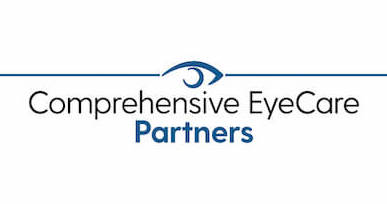
February is Age-Related Macular Degeneration (AMD) Awareness Month. AMD is one of several age-related eye conditions that are very common in older adults.
AMD awareness is essential because the condition doesn’t show any symptoms until permanent damage has already occurred to your vision. The best way to prevent this damage is through early detection. The only way to accomplish this is by scheduling regular eye exams.
Keep reading to learn more about age-related macular degeneration and how you can stay aware and prevent potential vision loss during AMD Awareness Month!
What is Age-Related Macular Degeneration?
AMD affects the macula, which is the center of the retina. The retina is the thin membrane at the back of your eye that contains special cells called photoreceptor cells.
These cells receive light that passes through your eye and then translates it into impulses that get sent to your brain, allowing you to see images.
AMD causes the macula to degenerate, meaning it destroys the photoreceptor cells.
Since the macula is in the retina’s center, AMD affects your central vision, making it harder to see unless something is in your peripheral vision. There are also two kinds of age-related macular degeneration: dry and wet.
Dry Vs. Wet Age-Related Macular Degeneration
Dry AMD is more common than wet AMD and tends to develop very slowly over time. When the macula becomes thinner with age, tiny deposits of a yellowish protein called drusen to grow and damage the photoreceptor cells.
Wet AMD occurs when blood vessels under the macula grow abnormally and start swelling and leaking. These new blood vessels damage the macula as the swelling and leaking develop scar tissue.
Dry and wet age-related macular degeneration shows no physical symptoms before your central vision becomes blurry. There’s no way to restore this vision by the time this happens, so it’s crucial to have AMD diagnosed early.
Early Detection
If you’re over 40, you should have regular eye exams at least once every two years. By the time you’re 50, you should have an eye exam yearly. You may also need eye exams more frequently if you’re at high risk for developing age-related macular degeneration. Risk factors for AMD include:
- Being Caucasian
- Consuming a high-fat diet
- Having hypertension
- Tobacco use
- Having a family history of AMD
Talk to your eye doctor about your medical history so they can assess your risk and determine how often you need eye exams. Eye exams are the only way AMD can be spotted before you experience visual symptoms, as your eye doctor can examine your retina to see early signs of damage.
Treatment
Dry AMD can be difficult to treat. But if you spot the signs early, your eye doctor may prescribe vitamins that can slow down the growth of drusen in the macula.
Unlike dry AMD, there are more treatment options for wet AMD. One way of treating wet AMD is with medication injected directly into the eye that inhibits blood vessel growth. There are also laser therapies that can seal leaking blood vessels.
There is no cure for either form of AMD, but early intervention and treatment can slow the progression of the disease and preserve your vision for years to come.
Do you have concerns about age-related macular degeneration or how healthy your eyes are? Schedule an appointment at Shepherd Eye Center in Las Vegas, NV, now.


